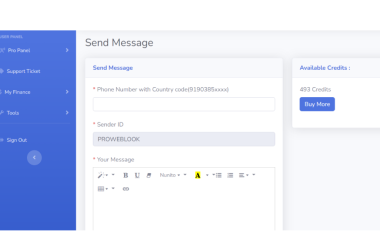Introduction.
URL Extractor: In the expansive realm of the internet, URLs (Uniform Resource Locators) serve as the gateway to accessing vast troves of digital content. From websites and web pages to multimedia files and documents, URLs are the digital addresses that enable users to navigate the online landscape with ease. Amidst this vast expanse of URLs lies a powerful tool known as the URL Extractor, a versatile instrument designed to parse, extract, and analyze URLs from various sources. In this comprehensive guide, we delve into the intricacies of URL Extractor, exploring its functionalities, applications, and significance in the digital age.
Understanding URL Extraction: The Essence of Digital Navigation.
Before exploring URL Extractors, understand the importance of URL extraction. URLs are internet’s building blocks, enabling navigation and access. A URL comprises protocol, domain, path, and parameters. They link users to web content seamlessly.
URL extraction involves the process of identifying and retrieving URLs from various sources, such as:
1. Web Pages: URL Extractors parse HTML and other markup languages to identify hyperlinks embedded within web pages. These extracted URLs provide valuable insights into website structures, interlinking patterns, and content distribution across the web.
2. Text Documents: URL Extractors scan text documents, including articles, reports, and manuscripts, to identify and extract URLs referenced within the text. This enables researchers, analysts, and content creators to analyze and catalog web references efficiently.
3. Email Messages: In the context of email communication, URL Extractors parse email messages to identify and extract URLs contained within the body or attachments. This facilitates email analysis, spam detection, and forensic investigations in the realm of cybersecurity.
4. Social Media Feeds: URL Extractors can parse social media feeds and extract URLs shared within posts, tweets, and comments. This enables social media monitoring, trend analysis, and content aggregation for marketing and research purposes.
Introducing URL Extractor: Unleashing the Power of URL Parsing.
URL Extractor emerges as a versatile tool designed to parse, extract, and analyze URLs from diverse sources across the digital landscape. Equipped with sophisticated algorithms and parsing techniques, URL Extractors offer a range of functionalities tailored to meet the evolving needs of users in various domains. Key features of URL Extractor include:
1. Automated URL Parsing: URL Extractors employ automated parsing algorithms to scan and identify URLs embedded within text, HTML, emails, and other digital content formats. These algorithms traverse the content structure, identify hyperlink patterns, and extract URLs with precision.
2. Customizable Extraction Criteria: Users can define customizable criteria and filters to refine the URL extraction process according to specific requirements. This includes filtering URLs based on domain, protocol, file type, or other metadata attributes, enabling targeted extraction and analysis.
3. Batch Processing Capabilities: URL Extractors support batch processing, allowing users to extract URLs from multiple sources simultaneously. This enhances efficiency and scalability, particularly in scenarios involving large volumes of data or content repositories.
4. URL Normalization and Validation: URL Extractors perform normalization and validation of extracted URLs to ensure consistency and integrity. This includes resolving relative URLs, removing duplicate entries, and validating URLs against predefined standards and protocols.
5. Metadata Extraction: In addition to extracting URLs, URL Extractors can retrieve metadata associated with each URL, such as page titles, descriptions, and timestamps. This enriched metadata enhances contextual analysis and provides valuable insights into the nature and relevance of extracted URLs.
Applications of URL Extract
Challenges and Considerations in URL Extraction.
While URL Extractors offer powerful capabilities for URL parsing and extraction, several challenges and considerations warrant attention:
1. Robustness and Scalability: URL Extractors must be robust and scalable to handle large volumes of data and diverse content formats effectively. Efficient parsing algorithms, parallel processing techniques, and resource optimization strategies are essential to ensure optimal performance and scalability.
2. Data Quality and Integrity: Maintaining data quality and integrity is critical in URL extraction operations, particularly when dealing with unstructured or semi-structured data sources. URL Extractors must incorporate validation checks, error handling mechanisms, and data cleansing techniques to ensure accurate and reliable results.
3. Privacy and Compliance: URL Extractors must adhere to privacy regulations, data protection laws, and ethical guidelines governing the collection and use of online data. Respect for user privacy, consent-based data collection practices, and compliance with regulatory requirements are essential considerations in URL extraction operations.
4. Dynamic Content and JavaScript Rendering: URL Extractors face challenges in parsing and extracting URLs from dynamic web content, AJAX-driven applications, and JavaScript-rendered pages. Techniques such as headless browser emulation, DOM traversal, and dynamic content extraction are necessary to handle such scenarios effectively.
Conclusion.
In conclusion, URL Extractor stands as a foundational tool for navigating the vast expanse of the internet, unlocking valuable insights and opportunities for innovation, discovery, and growth. “URL Extractors extract insights, identify trends, and uncover opportunities, aiding organizations in strategic decision-making and competitive advantage.”.
Visit Proweblook for more Web API tools. More resources can be found on our Github page, Social Channels are Twitter, Facebook & Youtube.








